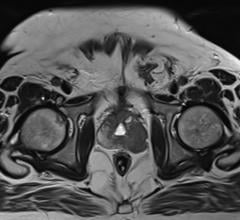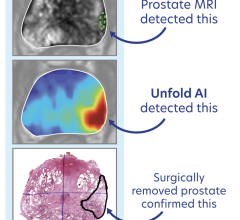October 3, 2017 — A new study finds that immune response in prostate cancer may be able to forecast how patients will respond to radiation therapy, as well as their likelihood of disease recurrence and survival outcomes. The analysis of more than 9,000 prostate tumors also found evidence that PD-L2, not PD-L1, may provide a key route for targeted therapies, such as immunotherapy, to slow disease progression. Findings were presented at the 59th Annual Meeting of the American Society for Radiation Oncology (ASTRO), Sept. 24-27 in San Diego.
“When the immune system responds to tumors, it sends specific types of immune cells directly to the tumor. Understanding this infiltration of immune cells allows researchers and oncologists to devise treatment strategies based on each patient’s specific immune response and disease biology. Checkpoint inhibitors and other immunotherapies have been utilized to manage other solid tumors. Our work suggests that there may be a role for these innovative treatments in prostate cancer, as well,” said Shuang (George) Zhao, M.D., lead author of the clinical study and a radiation oncology resident at the University of Michigan in Ann Arbor.
To better define the immune landscape of localized prostate cancer, researchers examined 9,393 tumor samples from men who underwent a radical prostatectomy, including 7,826 recently collected prospective tumor samples and 1,567 retrospectively obtained samples. Immune content in the tumor samples was identified using high-throughput computational analysis with specific immune-related genes. Gene expression profiling was conducted on a commercial clinical-grade platform, and gene selection was guided by the published literature.
Clustering analysis of the 9,393 tissue samples identified a subset of patients with higher expression of immune-related pathways. This immune content score, which was predicted computationally, appeared to predict prostate cancer recurrence, metastasis and survival. Higher levels of the immune content score were associated with lower likelihood of survival, including freedom from disease progression (Hazard Ratio (HR) = 1.3, p = 0.0002), freedom from distant metastases (HR = 1.3, p = 0.0006), prostate cancer-specific survival (HR = 1.5, p = 0.0003) and overall survival (HR = 1.3, p = 0.006). Clinical outcomes were available for retrospective data only.
The immune content score also predicted response to radiation therapy following radical prostatectomy. On multivariate analysis, it interacted significantly (p = 0.017) with response to post-operative radiation therapy (PORT).
“Our analyses also found a potential interaction between immune content and radiation response, suggesting that combinations of radiation therapy and immunotherapies may be a treatment option worthy of further investigation,” said Zhao.
Different types of immune cells were influential in different ways, indicating a complex interaction between immune cells and tumor cells. Specifically, higher levels of active macrophages and T-cells were prognostic for worse distant metastasis-free survival (p < 0.05), while active mast cells, NK cells and dendritic cells were associated with improved distant metastasis-free survival (p < 0.05). Individual cell types were examined from the genome-wide expression data using the CIBERSORT algorithm.
PD-L1, the target of several U.S. Food and Drug Administration (FDA)-approved checkpoint inhibitors, was not associated with outcomes in this study, but PD-L2, which interacts with PD-1 similarly to PD-L1, was associated with worse treatment outcomes. Specifically, higher levels of PD-L2 were associated with greater likelihood for disease recurrence (HR = 1.17, p = 0.013), distant metastasis (HR = 1.25, p = 0.014) and prostate cancer death (HR = 1.45, p = 0.003).
“As immune checkpoint blockers have come to market, PD-L1 has received a great deal of attention — but it does not appear to be widely expressed in prostate cancer. PD-L2, however, was much more highly expressed in these tumor samples, and it also was associated with worse outcomes. The understudied PD-L2 ligand may be the better therapeutic target for patients with localized prostate cancer,” said Zhao.
“The immune landscape of prostate cancer is highly complex. We need to develop treatment approaches that account for individual tumor and patient characteristics in order to prescribe the best treatments for each individual prostate cancer patient,” he concluded.
For more information: www.astro.org
Related Content
Clinical Trials and Cutting-Edge Radiation Oncology Research to Be Featured at ASTRO 2017


 April 17, 2024
April 17, 2024 








